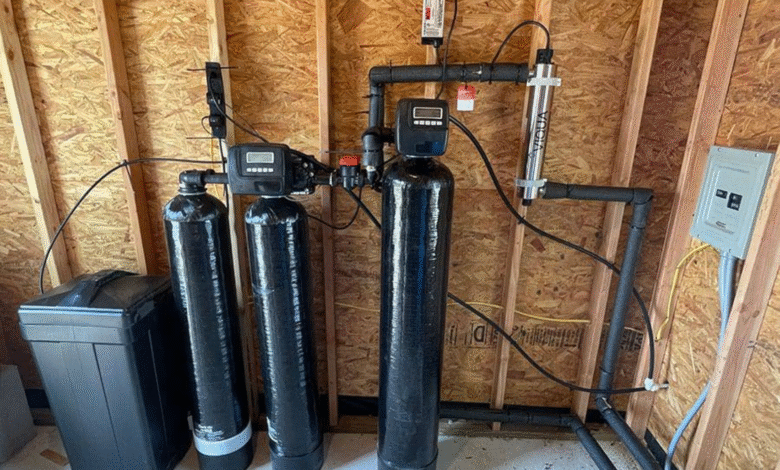Softening the Debate: Potassium Chloride vs. Sodium Chloride for Your Water Softener

Water softeners don’t usually make the list of exciting home upgrades. They’re the kind of behind-the-scenes heroes we only think about when things go wrong—like when our glasses come out of the dishwasher cloudy, our skin feels dry after a shower, or the water heater starts acting up. But if you’ve already taken the plunge and installed one, good on you. You’ve tackled hard water head-on.
Now comes the part you probably didn’t expect: deciding what to feed your softener. Enter the classic question—potassium chloride vs sodium chloride for water softener systems. It sounds technical, maybe even unimportant. But trust me, this simple choice can affect everything from your health and budget to your landscaping and environmental impact.
Let’s walk through the differences, the pros and cons, and how to figure out which option actually makes sense for your home.
Why Water Softeners Need Salt (or Something Like It)
Before we jump into the salt vs. potassium showdown, let’s clarify something: water softeners don’t technically remove minerals—they replace them. Specifically, they swap out calcium and magnesium (the minerals that make water “hard”) with sodium or potassium ions through a process called ion exchange.
To keep this process going, your softener needs to periodically “recharge” with either sodium chloride (yep, regular salt) or potassium chloride. Both work, but they do so in slightly different ways—and that’s where the decision starts to matter.
Sodium Chloride: The Reliable Old Workhorse
Sodium chloride is what most people use, simply because it’s familiar, affordable, and widely available. You’ll find 40-pound bags of it stacked like bricks at any hardware or big-box store. It does the job, and for many households, it does it well.
The upsides of sodium chloride:
- Cost-effective: Usually half—or even a third—the cost of potassium chloride.
- Efficient: Sodium is slightly better at regenerating resin beads, which means your system works a little more efficiently and uses less product over time.
- Availability: Easy to find anywhere, anytime.
But there’s a catch, and it’s worth considering. Since sodium is added to your water during softening, trace amounts end up in your household water supply. It’s not a lot—usually not enough to affect taste or health—but for those on low-sodium diets, it can be a deal-breaker.
Also, salt runoff from softeners can be tough on the environment. It’s not ideal for irrigation or septic systems, and some regions have even started placing restrictions on salt-based softeners.
Potassium Chloride: The Cleaner, Greener Alternative
Potassium chloride is the go-to for folks looking for a more eco-friendly, health-conscious choice. It does the same ion exchange job, just with potassium instead of sodium. For most systems, it’s a drop-in replacement.
The perks of potassium chloride:
- No sodium added: A major win if you’re monitoring sodium intake or want peace of mind when drinking softened water.
- Better for plants and soil: If you’re using softened water for irrigation, potassium is actually beneficial for plant growth.
- Eco-friendlier: Potassium-based regeneration is easier on septic systems and groundwater.
Now, here’s the not-so-fun part: cost. Potassium chloride is significantly more expensive—often three to four times the price of sodium chloride. And because it’s a bit less efficient at ion exchange, you may need more of it, which adds up over time.
Still, for some households, the peace of mind is worth the price tag.
Real-World Considerations: What Actually Matters?
Choosing between sodium and potassium isn’t just about chemistry—it’s about lifestyle, priorities, and a little bit of math. Here are a few things to think about:
- Health Concerns: If someone in your household is on a low-sodium diet, potassium is probably your best bet.
- Gardening Goals: If your outdoor water line runs through the softener (not uncommon), potassium is far kinder to your plants.
- Budget: If you’re running a large system or softening water for a big household, the price difference might not be easy to swallow.
- Local Regulations: Some areas are starting to regulate or ban salt-based softeners. Check with your local water district or environmental agency.
- System Compatibility: Most modern softeners work with either product, but it’s still wise to check your manual or call the manufacturer before switching.
And if you’re still unsure? Try both. Start with salt, see how your system performs, then switch to potassium for a cycle or two. You’ll get a feel for the pros and cons in your own space.
The Environmental Angle
Let’s talk green for a moment. While sodium chloride is effective, its environmental impact is real. Salt discharged into groundwater or septic systems can harm aquatic life and contribute to long-term soil degradation. Potassium, by contrast, is a plant nutrient and breaks down more gently in the environment.
If you’re eco-conscious and trying to reduce your household footprint, potassium chloride makes a compelling case—especially if you live in a region where water conservation and sustainability are front of mind.
So… Which One Should You Choose?
There’s no one-size-fits-all answer here. Sodium chloride is cheaper, more efficient, and widely used. Potassium chloride is cleaner, safer for health and the environment, but costs more. It all boils down to what matters most to you.
Want to save money? Salt wins. Watching your health and garden? Potassium’s your friend. Trying to split the difference? Some homeowners alternate—using sodium most of the year, then switching to potassium during the growing season or when guests are around.
Final Thoughts: It’s What’s Inside That Counts
Your water softener is working hard behind the scenes, protecting your pipes, your appliances, and even your skin. Choosing the right regeneration media—whether it’s salt or potassium—isn’t just about maintenance. It’s about making sure your system works with your lifestyle, not against it.
So the next time you’re staring at those stacked bags at the store, wondering what to choose, remember this: the question of potassium chloride vs sodium chloride for water softener is really about what you value most. Cost? Health? Efficiency? Sustainability?
Either way, you’re making a choice that helps your home run smoother, cleaner, and smarter. And honestly, that’s pretty refreshing.




